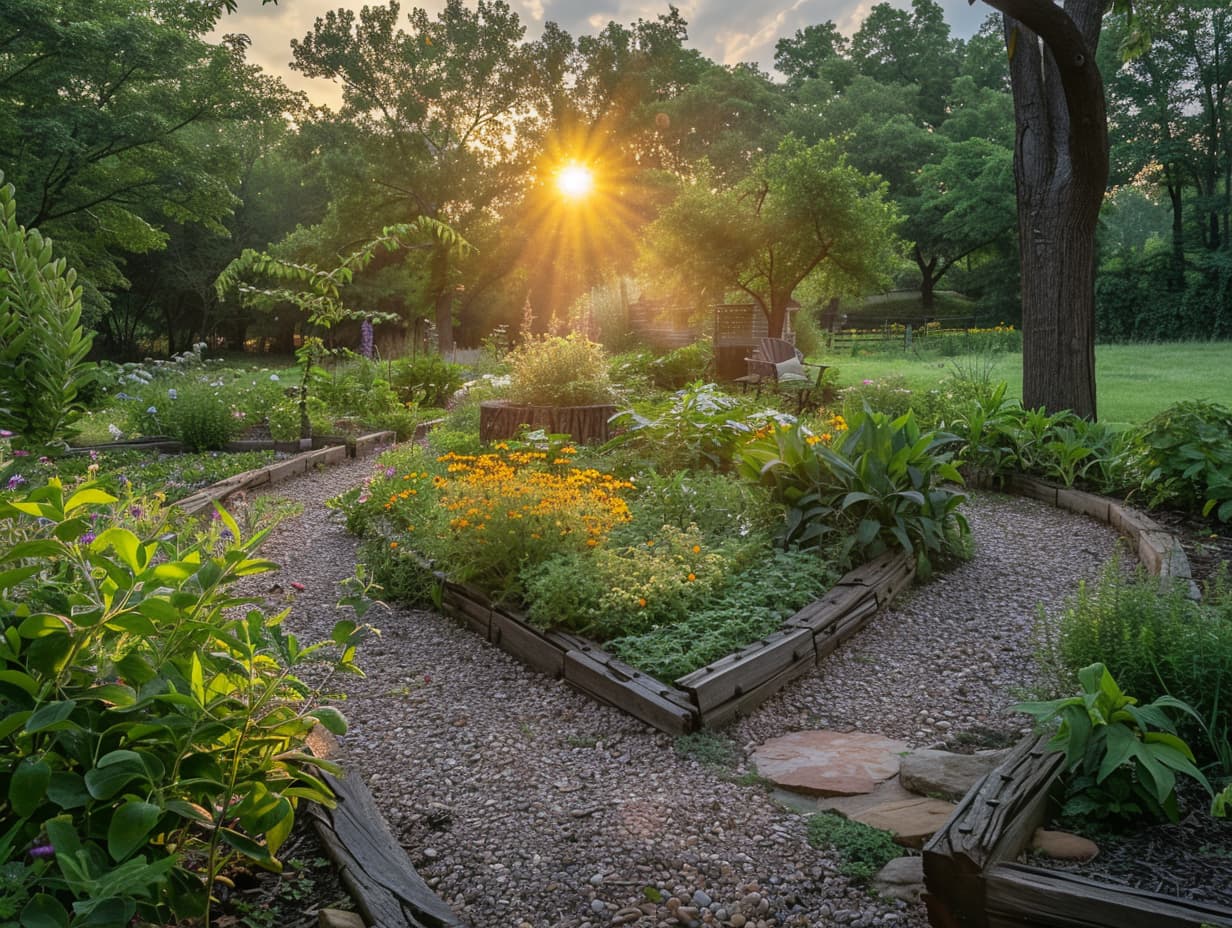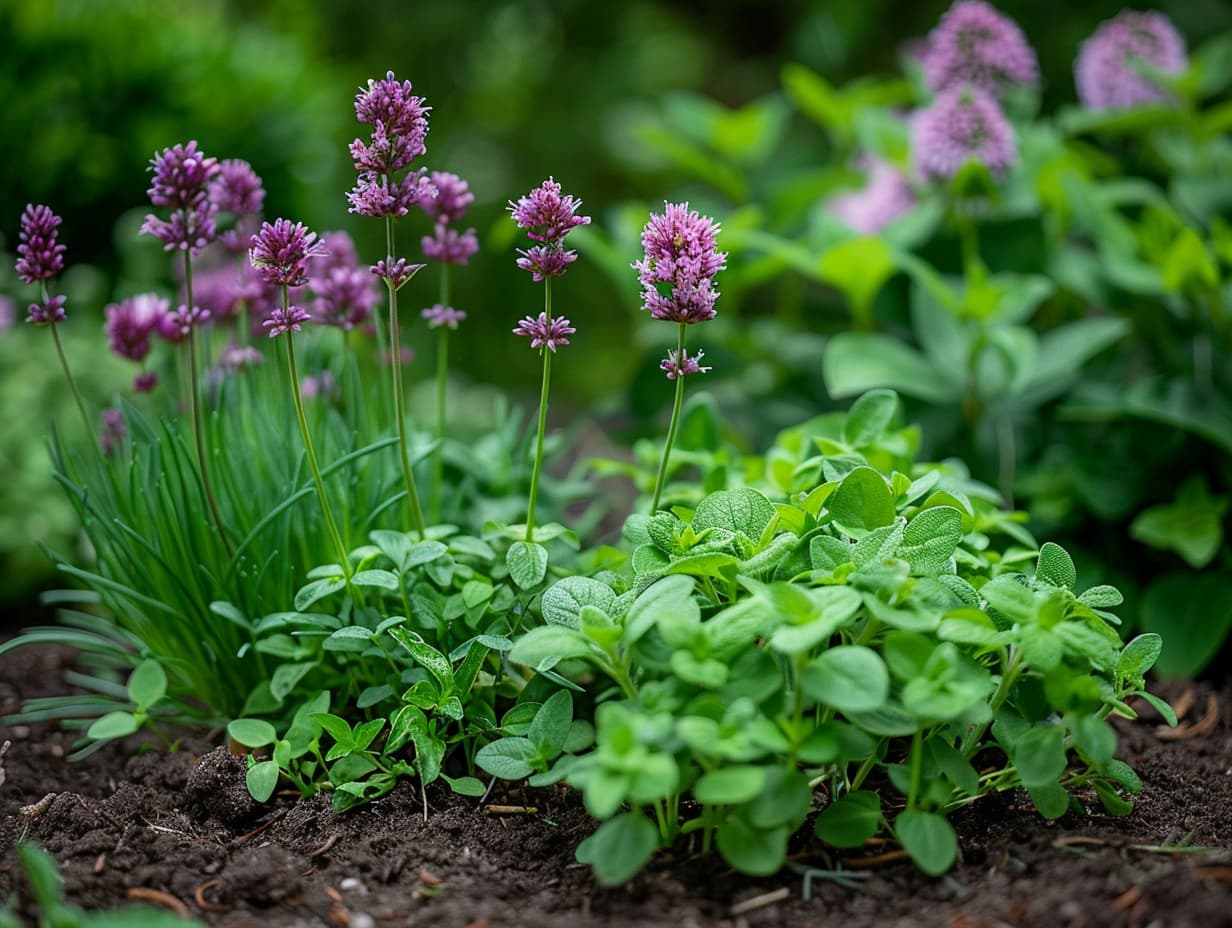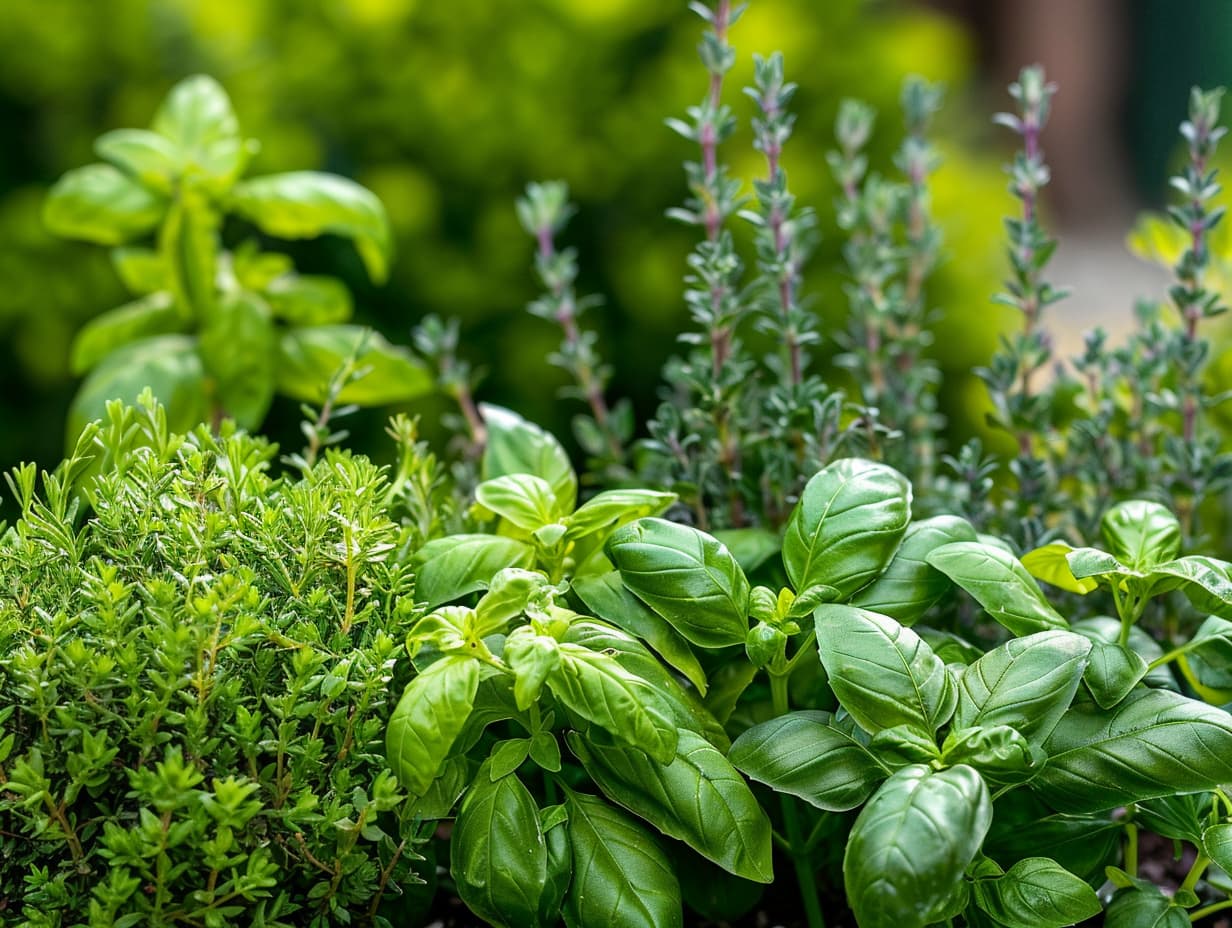When you buy products via links on our website, we might receive an affiliate commission. Learn more
The Unsung Heroes of Your Garden: Herbs

For centuries, herbs have been a fundamental part of gardens, valued not only for their culinary uses but also for their numerous other benefits.
This blog explores the fascinating world of herbs and why they deserve more recognition and appreciation in our gardens.
Flavors Beyond Compare
One of the main reasons to grow herbs is the incredible flavor they add to your dishes. Homegrown herbs offer a freshness and vibrancy that store-bought herbs can't match.

Imagine the rich aroma of oregano, the subtle floral notes of chives, or the sweet burst from a blackcurrant sage flower. These flavors are just a taste of the culinary adventure that awaits you with homegrown herbs.

Herbs like basil, thyme, and rosemary can elevate a simple dish into a gourmet experience. Freshly picked basil leaves added to a Caprese salad bring an intense, sweet fragrance that dried basil simply can't compete with.
Similarly, a sprig of rosemary can transform roasted vegetables or meats with its piney, robust flavor.
Growing your own herbs also means you can experiment with less common varieties that aren't always available in stores. Have you ever tried lemon balm in your tea or used savory in your soups? The possibilities are endless, and the satisfaction of cooking with herbs you've nurtured yourself is immense.
A Haven for Pollinators and Beneficial Insects
Herbs are not just culinary stars; they also play a crucial role in supporting garden biodiversity.
Their colorful flowers attract beneficial insects, including essential pollinators like bees and butterflies. These insects help maintain a healthy garden ecosystem, benefiting all your plants and vegetables.
For example, dill and fennel are magnets for ladybugs and lacewings, which are natural predators of aphids.
By planting these herbs, you're inviting these beneficial insects into your garden, providing a natural pest control solution. Moreover, the presence of pollinators ensures that fruiting plants have a higher chance of producing abundant crops.
How to Integrate Herbs into Your Garden
Herbs are incredibly versatile and can be easily integrated into your garden. Whether you dedicate a specific bed for them or interweave them with your vegetables, they fit seamlessly.
Perennial herbs like lemon verbena can border garden beds, while annuals like dill and coriander can grow among other crops.
Interplanting herbs with vegetables is a smart gardening strategy. Basil, for example, is known to repel pests like aphids, asparagus beetles, and tomato hornworms, making it an excellent companion plant for tomatoes.
Similarly, planting chives near your carrots can help deter carrot flies.
How to Multiply Your Herbal Bounty
Growing herbs is rewarding, especially when it comes to propagation. With simple techniques like cuttings or division, you can create new plants, ensuring a continuous supply of fresh herbs.
This not only saves money but also allows you to expand your herb variety and experiment with different types.

Mint, for instance, is incredibly easy to propagate through cuttings. Simply take a healthy stem, place it in water until roots develop, and then plant it in soil.
Soon, you'll have a flourishing mint plant ready for your culinary needs. Similarly, chives can be divided every few years to rejuvenate the plants and increase your stock.
Embrace the Low-Maintenance Magic of Herbs
Herbs are generally low-maintenance, thriving in fertile soil without needing constant compost or manure.
This makes them perfect for areas with less-than-ideal soil quality, providing a low-maintenance way to add flavor and beauty to your garden.
Most herbs prefer well-drained soil and can tolerate periods of drought, making them ideal for busy gardeners.
Mediterranean herbs like thyme, rosemary, and lavender thrive in poor, rocky soils and need minimal watering once established. This resilience makes them an excellent choice for gardeners looking for easy-care plants.
Welcome Herbs Into Your Garden
Whether you’re an experienced gardener or just starting out, herbs offer numerous benefits, from enhancing your culinary creations to supporting ecological health. Start your herb journey today and uncover the hidden treasures in your own backyard.
Consider starting with a few easy-to-grow herbs like basil, mint, and parsley.
These herbs are forgiving and can quickly reward you with lush growth and abundant harvests. As you gain confidence, you can explore more exotic varieties and expand your herbal repertoire.
